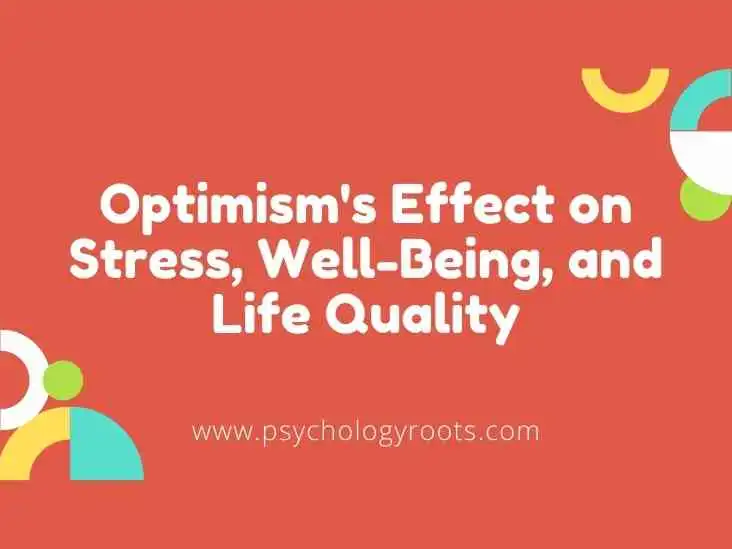Table of Contents
Optimism’s Effect on Stress, Well-Being, and Life Quality
Here in this post, we are discussing “Optimism’s Effect on Stress, Well-Being, and Life Quality”. You can read more about psychology-related material on our website. Keep visiting Psychology Roots.
Optimism’s Effect on Stress, Well-Being, and Life Quality
Optimism is a mode of thinking that sees the current moment as being at its best (optimised), despite the fact that it may not be possible to grasp all of the forces at play. As a general rule, the term “optimistic” is used to refer to an attitude of optimism about the future (Susan, 2000). Having a positive outlook on life has been shown to lower stress and improve overall health and well-being. It has been shown by certain researches to have a stronger favourable impact on well-being and quality of life than was previously thought by Vickers and Vogeltanz (2000).

Optimism’s Effect on Stress, Well-Being, and Life Quality
Stressed persons’ subjective well-being may be predicted by their optimism, according to Scheier and Carver (1992). Positive thinkers are more likely than negative thinkers to say that they wake up feeling refreshed and less likely than negative thinkers to say that they wake up early in the morning. More optimistic people also claim that they have a more exciting and varied life than pessimists, as well as a lower level of stress and irritation. When it comes to their relationships with friends and their occupations, optimists have a higher level of satisfaction than pessimists. Finally, they continue to enjoy a greater standard of living than do pessimists.
Helgeson, Snyder, and Seltman (2004) found that an index of personal resources predicted indices of well-being and quality of life many years later. When demographic and medical factors were taken into account, these benefits of optimism remained. Further adjustments for previous levels of well-being lowered their significance, but they remained significant still. Continuity of experience and a low degree of stress have been linked to long-term well-being and quality of life following breast cancer therapy in several studies (Diener, Suh, Lucas, & Smith, 1999).
Help Us Improve This Article
Have you discovered an inaccuracy? We put out great effort to give accurate and scientifically trustworthy information to our readers. Please notify us if you discover any typographical or grammatical errors.
Make a comment. We acknowledge and appreciate your efforts.
If you have any scale or any material related to psychology kindly share it with us at psychologyroots@gmail.com. We help others on behalf of you.